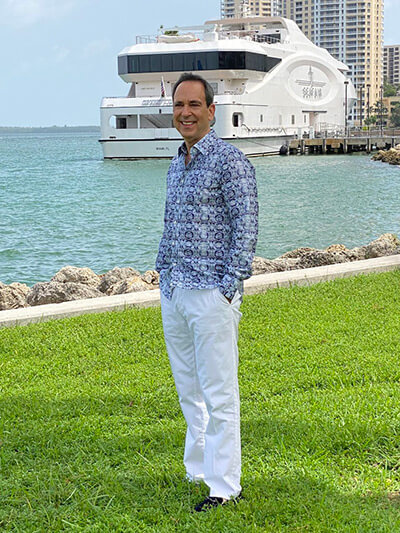Are Liability Waivers Enforced in Cruise Ship Injury Lawsuits?
Cruises might make passengers sign liability waivers before embarking to protect themselves from liability for potential accidents and injuries. However, victims might still be able to sue for compensation despite signing waivers.
Cruise ship liability waivers may not be enforceable if gross negligence caused an accident, the waiver contained ambiguous language the passenger could not understand, or the waiver contradicted public policy. Assuming you cannot sue because you signed a waiver before your trip could make you delay your case, putting you at risk of missing the filing deadline. We can carefully read the waiver and obtain and review evidence from the accident to determine if the court will enforce it. Before confirming you can sue, proceed as if you can and report the accident to the cruise ship, preserve evidence to the best of your ability, and seek medical attention for your injuries.
Schedule a free case review from our cruise ship accident and injury lawyers by calling Rivkind Margulies & Rivkind, P.A. at (305) 204-5369.
Are Cruise Ship Liability Waivers Enforced in Injury Lawsuits?
When purchasing a cruise ship ticket, you may also sign a liability waiver or agree not to sue the company for certain accidents and injuries. Fortunately, liability waivers are only sometimes enforceable, and our lawyers can confirm whether or not that is true in your case.
Gross Negligence Caused the Accident
Liability waivers are not enforceable for accidents caused by gross negligence, as victims cannot fairly assume risks due to someone else’s egregious recklessness or misconduct. For example, cruise ships must have guardrails above a certain height—42 inches—to prevent falls overboard or onto lower decks. This is mandatory under the Cruise Vessel Security and Safety Act (CVSSA), and not ensuring all decks have this crucial safety measure could be gross negligence and increase the risk of serious or fatal injuries from falls.
The Waiver is Ambiguous
Liability waivers must contain clear and unambiguous language so that passengers understand the rights they are waiving. Using confusing jargon or hiding important information within waiver documents could lead to passengers agreeing without fully appreciating the possible consequences should they sustain injuries that require compensation. Our cruise ship accident and injury lawyers can carefully review your passenger ticket and any additional waiver documents to confirm if the language would make it void, enabling you to sue for the accident.
Furthermore, the waiver must specifically state which liabilities the cruise ship company is immune from, and, depending on the circumstances, your accident might not be mentioned in the document. The waiver would be unenforceable in these situations, as it would not apply.
The Waiver Contradicts Public Policy
On top of not covering gross negligence, waivers cannot attempt to eliminate liability for deliberate acts. Cruise ships are, unfortunately, somewhat dangerous places, and passengers might be the victims of various intentional acts, including physical assaults or sexual assaults. Cruise ships might be liable for victims’ damages in these situations, as they must properly vet employees before hiring them and maintain property security onboard and while docked at ports to deter such events.
What if You Were Injured on a Cruise Ship and Signed a Liability Waiver?
First of all, do not assume you cannot sue. Immediately after the accident, crew members or representatives of the cruise ship company might claim that because the ticket or passenger contract waived certain liabilities, you do not have legal recourse to seek compensation. Do not take what they say at face value; proceed as if you can file a claim.
Preserve Evidence
Victims injured because of negligent poor maintenance, negligent security, or a lack of sufficient safety measures should immediately photograph the area and report the incident to the cruise ship. Cruise ships should have protocols for falls overboard, and our lawyers can obtain reports detailing search and rescue missions when preparing claims for victims or their survivors.
Cruises must have surveillance systems onboard per the CVSSA, and we can quickly request footage to ensure it is not deleted. If the cruise refuses to provide footage in a timely manner, we can subpoena it to assess how it might factor into your case. Furthermore, we can identify eyewitnesses of the accident and promptly contact them to schedule interviews and preserve their statements. If the cruise ship did not speak to eyewitnesses when investigating the accident, we may identify them by reviewing security camera footage and using other tactics.
Get Medical Care
You should also get medical care, not just to generate evidence for a potential compensation claim, but to monitor your condition and ensure you get the appropriate treatment to facilitate a full physical recovery, if possible. Cruise ships have small medical facilities aboard vessels where victims can go for immediate treatment. Depending on your injuries, you might have to be transported to the closest hospital capable of treating you. For example, victims who fall onto lower decks might sustain broken bones or internal injuries that require surgery. If, after reviewing the waiver, the evidence, and the accident, our lawyers deem the court will not enforce the waiver, the cruise ship company would be liable for all medical costs associated with your injuries.
Quickly Confirm Your Right to Sue
On top of making passengers sign liability waivers, cruises might include additional caveats in tickets, like shortening the statute of limitations for injury claims to one year and specifying their chosen jurisdictions for lawsuits. Because victims might have less time to seek compensatory damages, they should confirm their right to sue despite signing a waiver immediately. If you wait to have our lawyers assess the waiver, you might miss the deadline to sue, which would block you from recovering any damages, just like the case would be if the waiver were enforceable.
Call Our Lawyers About Your Cruise Ship Injury Today
Call Rivkind Margulies & Rivkind, P.A. at (305) 204-5369 for help with your case from our Miami cruise ship accident and injury lawyers.


